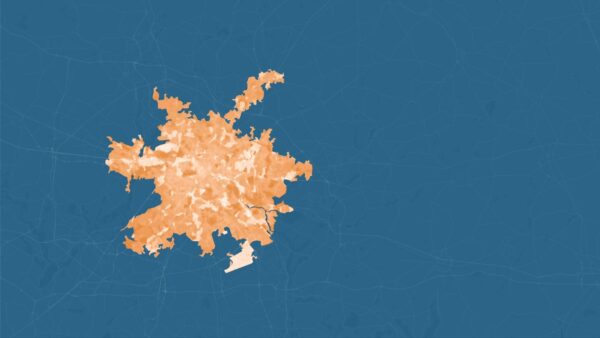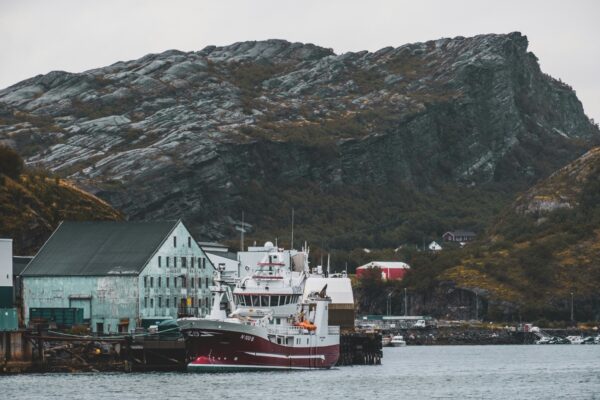Completed
Understanding the climate impacts associated with temporarily overshooting 1.5°C
Contacts
Funder
Partners
Humboldt-Universität zu Berlin, Vlaamse Instelling Voor Technologisch Onderzoek N.V., BUUR – Bureau voor Urbanisme, CICERO Senter Klimaforskning Stiftelse, Commissariat à L’Énergie Atomique et aux Énergies Alternatives, Centre National de la Recherche Scientifique CNRS, FCIENCIAS.ID – Associacao Para a Investigacao e Desenvolvimento de Ciencias, Weather and Climate Services Limited, Imperial College of Science, Technology and Medicine, Eidgenössische Technische Hochschule Zürich, Universität Bern, Universität Innsbruck, University of East Anglia, ARTTIC Innovation GmbH, Nordlandsforskning AS, University of British Columbia,
Share

The PROVIDE project is working to build an interactive web tool that displays the impacts of exceeding a 1.5°C temperature threshold on human activities and industries. Built for everyday users and adaptation practitioners alike, the PROVIDE Climate Services Dashboard uses high-resolution modelling on a variety of spatial scales, allowing climate impacts to be explored under different global warming scenarios. The goal of the project is to allow risk thresholds to be the starting point for adaptation planning.
The 1.5°C Paris Agreement long-term temperature goal guides global climate action to avoid the most devastating impacts of climate change. However, under current emissions trajectories, overshooting 1.5°C is a distinct possibility. Even if we only temporarily exceed 1.5°C in the near term, we could still cross climate thresholds, tipping the climate system into a new state, which would severely limit our adaptation options.
The PROVIDE project aims to reverse the impact chain to allow researchers, everyday users, and adaptation practitioners to set risk thresholds for societal impacts (e.g. health issues due to heatwaves) caused by geophysical impacts (e.g. sea-level rise) so that they can analyse under which conditions these impacts can be avoided.
To achieve this, we have developed our tool with a framework of multiple temperature overshoot pathways, using a chain of computationally light-weight climate emulators that operate across scales (global, regional, and urban cities).
The output tool – the PROVIDE Climate Services Dashboard – is an online platform providing detailed information on temperature overshoot scenarios and their expected impacts on human industries and activities, including extreme events, biodiversity loss, cryosphere loss, sea-level rise, and the effects on agriculture, economies, socio-economic vulnerabilities, and others. The information includes global, national, and city-level modelling results.
Methodology
First, PROVIDE links global emissions pathways to sectoral impacts, such as agriculture or infrastructure across spatial scales and urban climate risk projections. High-resolution modelling was carried out for 140 cities, 100 of which are European.
Second, PROVIDE assesses the risks of high-overshoot global warming scenarios (overshooting the 1.5 C temperature threshold) and the potentially irreversible impacts of exceeding these thresholds, including sea-level rise, permafrost loss, glacier loss and biodiversity loss, on human sectors and industries.
Third, PROVIDE explores global and regional climate change risks and impacts under current emissions pathways in countries’ climate targets vs Paris Agreement limits and overshoot implications.
Finally, the PROVIDE project offers an additional overshoot proofing methodology as a tool within the Climate Services Dashboard. The overshoot proofing methodology supplements existing adaptation decision-support tools and apply to national and local adaptation policies worldwide and their related decision-making frameworks. PROVIDE then uses the overshoot proofing methodology to two EU sectoral adaptation strategies: agriculture and infrastructure. The data’s design and presentation is co-developed together with stakeholders.
Four iconic regions and cities
We have identified four representative regions (where physical risks overlay with specific socio-economic vulnerabilities) as case studies where more detailed information will be available in the online tool. We have developed the case studies in close collaboration with local and regional stakeholders.
We hope these regions will provide entry points for raising awareness about the need for enhanced adaptation action under overshoot scenarios and offer a practical testbed for generalisable urban planning approaches.
Arctic Fennoscandia – City of Bodø, Norway
- In Arctic Fennoscandia, expected climate impacts in the coming decade include a shift to only seasonal ice cover, increased frequency of storms, rain-on-snow events, avalanches, polar lows, and extreme wave heights.
- The City of Bodø is a growing urban centre that faces risks related to landslides, avalanches, pollution transport, sea-level rise combined with risks for increased wave height.
Iberian Mediterranean – Lisbon Metropolitan Area, Portugal
- The Iberian Mediterranean has a wide range of climate vulnerabilities related to extreme temperatures, droughts and water scarcity, forest fires, agriculture yield and species loss.
- Lisbon is a typical Mediterranean coastal city, both in terms of vulnerability to extreme climate events, and economic impacts such as reduced labour productivity.
Indus Basin – City of Islamabad, Pakistan
- The whole Indus River Basin is characterised by high socio-economic vulnerability and exposure to key impacts such as extreme weather events (e.g. heat, flood and drought), economic damages and crop failure.
- Pakistan’s capital Islamabad is projected to grow considerably over the following decades and is vulnerable to risks such as water shortages, urban flooding, and heat stress.
Caribbean small islands – City of Nassau, The Bahamas
- The Bahamas has high levels of exposure to climate hazards, including increased intensity of tropical cyclones, more intense and extended marine heatwaves, rising sea levels, extreme wave heights, increased rainfall intensity and prolonged periods of drought.
- The population of 400,000 (60% resides in Nassau) are spread over approximately 20 islands where limited resources and concentration of communities along the coasts makes adaptation especially challenging.
Stakeholder engagement
The PROVIDE Climate Services Dashboard has been co-developed with practitioners, scientists, litigation experts, businesses, civil society, and other potential users interested in the PROVIDE approach.
We want to advance collaboration between potential users of climate impact information, researchers, and providers to develop stakeholder-oriented climate science and a community around overshoot issues in adaptation planning. We intend to increase the ownership and capacities of decision-makers and regional/urban planners to customise and use the PROVIDE tools (e.g. the Climate Service dashboard) and methods for their specific adaptation planning.
The PROVIDE stakeholder base consists of regional, European, and global stakeholders.








